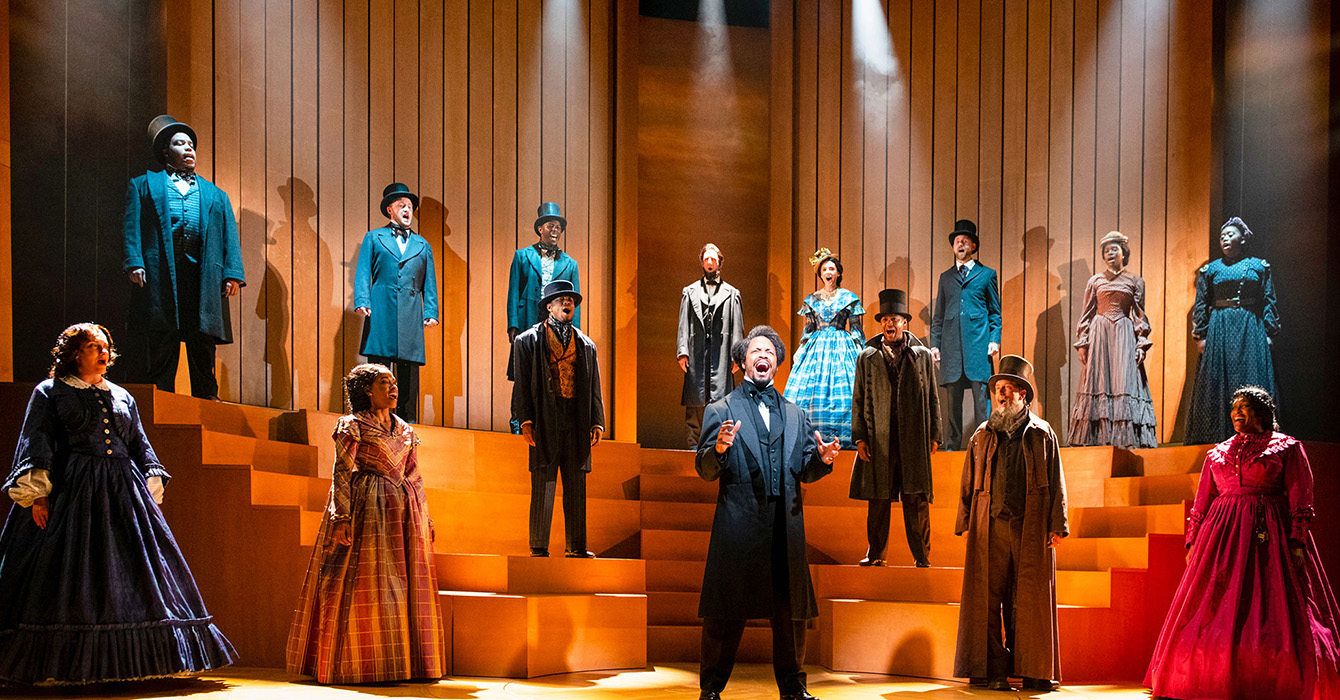Johnny Cash may have been one of our greatest recent theologians. He wasn’t just as a pop culture figure from whom we can wring theological meaning if we squeeze real hard, but someone who tells the truth of Jesus in a way that others find compelling. Rodney Clapp’s book made this clear to me over the course of Cash’s career, but his song “I Hung My Head” made it unmistakable. Its protagonist kills a man by accident, while practicing his aim on a distant rider: “My brother’s rifle went off in my hand.” The result was calamitous, both for the man and his family: “I orphaned his children, I widowed his wife.” And as the shooter stands at the gallows, “a trick of the brain,” he sees the same man, “come to fetch me . . . and we’ll ride together to kingdom come.” That’s the gospel: we murder someone with the power to return from the grave who desires not vengeance, but to be our savior.
I had anxiety about the newest Cash release, the last that will be issued post-mortem. His previous, “My Mother’s Hymn Book” had that same wise, scratchy, God-like voice, and the hymns are some of the favorites of the tiny country church of the sort he and his mama grew up in. But they also had some of the weaknesses of that tradition. The songs are taken up with post-death salvation, souls in flight, bodies left behind, the world forgotten. I’m sure these songs can be read more charitably than that, but it would take some fancy footwork to do so.
The title track of this newest one, “Ain’t no grave” seemed like it would be more of the same saccharine. I could not have been more wrong. It starts with plaintive guitar strumming as Cash bellows the familiar words of the spiritual, “There ain’t no grave can hold my body down.” Then just before “When I hear that trumpet sound, I’m gonna rise right out of the ground,” an extraordinary background sound kicks in. It’s a deep drumming accompanied by what seems like an enormous, heavy chain being dropped and picked back up in rhythm. It sounds not like the accompaniment to a flighty spiritualist tune like “I’ll fly away,” and more like something that would go with a song on torture or murder or promised judgment, as with Cash’s marvelous “God’s Gonna Cut You Down.” And, just so, the song works. Its tune is haunting as its words take flight, and deep roots ground soaring branches. “Meet me Jesus, meet me, meet me in the middle of the air, and if these wings won’t fail me I will meet you anywhere” doesn’t sound sweet here. It sounds terrifying. Just like Jesus’ saving work on us.
Roger Martin introduced to business world readers the idea of an “opposable mind.” As a human thumb allows us to pick up stuff, so leaders must hold together the irreconcilable until some new possibility emerges. Others have written about how much Martin’s description sounds like the gospel. Christians have to affirm things in tandem that the world prefers to pull apart: evangelism and social justice, piety and prophesy, tradition and innovation, biblical fidelity and engagement with the newest, sharpest ideas. Heresies, Rowan Williams argues, are always simplifying movements. They lop off part of the truth and guard it at the expense of the whole. The Arians weren’t wrong to say the Son is a creature. They just weren’t right enough: he’s also the eternal Son of God. If he weren’t divine, then he couldn’t save us creatures.
Cash reminds me that opposability is not only interesting intellectually. It’s also possible. Holding things together that aren’t normally joined, like falling chains and flying souls, is not just doable, it’s been done. Just listen to Cash. The result might haunt you. Or it might set you to creating something new. Or rather something old and new at the same time.







